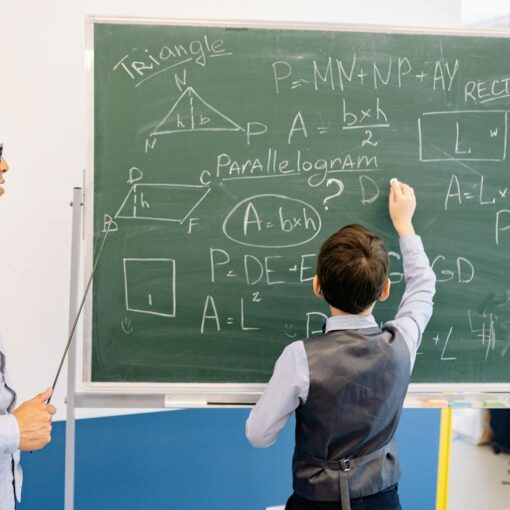
- Search Search Search …
- Search Search …

The Fundamentals of Scientific Thinking and Critical Analysis: A Comprehensive Guide

Scientific thinking and critical analysis are fundamental skills that play a crucial role in our daily lives. These skills help individuals to analyze information, evaluate arguments, and make informed decisions based on facts and evidence. The ability to think critically is especially important in the field of science, where scientists rely on logical reasoning and empirical evidence to understand the natural world.
Scientific thinking involves a systematic approach to problem-solving, where individuals use empirical evidence, logical reasoning, and critical thinking to develop hypotheses, test them, and draw conclusions. Critical analysis, on the other hand, involves evaluating information, arguments, and claims in a systematic and objective way to determine their validity and reliability. By combining these two skills, individuals can develop a deeper understanding of the world around them and make informed decisions based on evidence.
In today’s world, where information is readily available, the ability to think critically and analyze information is more important than ever. With so much information at our fingertips, it can be difficult to separate fact from fiction. The ability to think critically and evaluate sources of information is crucial to making informed decisions and avoiding misinformation. Therefore, understanding the fundamentals of scientific thinking and critical analysis is essential for anyone seeking to navigate the complex world of information and science.
Understanding Scientific Thinking
Scientific thinking is the thought process and reasoning involved in the field of science. It encompasses various techniques such as observation, induction, deduction, and experimental design. This section will provide an overview of the scientific method, experimental design, and systematic reasoning.
The Scientific Method
The scientific method is a systematic approach to investigating phenomena, acquiring new knowledge, or correcting and integrating previous knowledge. It involves the following steps:
- Define the purpose of the experiment
- Formulate a hypothesis
- Study the phenomenon and collect data
- Analyze the data
- Draw conclusions
- Communicate the results
Experimental Design
Experimental design involves the planning and execution of experiments to test hypotheses. It involves the following elements:
- Hypotheses: A hypothesis is a tentative explanation for an observation or phenomenon.
- Experiment: An experiment is a test of a hypothesis.
- Control: A control is an experimental condition that remains constant throughout the experiment.
- Variable: A variable is any factor that can change in an experiment.
- Control group: A control group is a group that is not exposed to the experimental treatment.
- Variables: Variables are factors that can change in an experiment.
- Data collection: Data collection involves the collection of data through observation or experimentation.
- Hypothesis testing: Hypothesis testing involves the use of statistical analysis to determine the probability that an observed effect is due to chance.
Systematic Reasoning
Systematic reasoning involves the use of logical and critical thinking to evaluate hypotheses and alternative explanations. It involves the following elements:
- Induction: Induction involves the use of observations to develop general principles or theories.
- Deduction: Deduction involves the use of general principles or theories to make predictions about specific observations.
- Alternative explanations: Alternative explanations are explanations that are different from the original hypothesis.
- Qualitative: Qualitative data is descriptive data that cannot be measured.
- Falsifiable: Falsifiable means that a hypothesis can be tested and potentially proven false.
Scientific thinking is fundamental to the fields of chemistry, physics, biology, and the study of the universe. It involves the use of controls to ensure the validity of experiments and the collection of data to support or refute hypotheses.
The Art of Critical Analysis
Critical analysis is an essential component of scientific thinking. It is a process of evaluating information, ideas, and arguments to form a well-reasoned judgment. The art of critical analysis involves the ability to identify and evaluate arguments, examine evidence, and detect bias. This section will explore the basics of critical analysis, including hypothesis and argument formation, and evaluating evidence.
Hypothesis and Argument Formation
Hypothesis and argument formation are crucial steps in critical analysis. A hypothesis is a proposed explanation for a phenomenon that can be tested through experimentation or observation. It is essential to form a hypothesis that is testable, falsifiable, and based on available evidence. An argument is a set of propositions that support or oppose a particular position. Arguments can be deductive or inductive and may involve premises, evidence, and conclusions.
When forming a hypothesis or argument, it is essential to consider the available evidence and avoid personal bias. Personal biases can influence hypothesis and argument formation, leading to confirmation bias, where individuals seek evidence that supports their pre-existing beliefs, and ignore evidence that contradicts it. It is essential to approach hypothesis and argument formation with an open mind and evaluate evidence objectively.
Evaluating Evidence
Evaluating evidence is a crucial step in critical analysis. Evidence can come in many forms, including data, expert opinions, and personal experiences. When evaluating evidence, it is essential to consider the reliability and objectivity of the source. Reliable evidence is based on accurate and verifiable data, while objective evidence is free from personal bias.
In addition to evaluating the reliability and objectivity of evidence, it is essential to examine the reasoning and logic behind the evidence. Sound reasoning involves using valid arguments that are based on premises that are true and relevant to the conclusion. It is essential to examine the reasoning behind the evidence and ensure that it is logical and valid.
In conclusion, critical analysis is an essential component of scientific thinking. It involves the ability to identify and evaluate arguments, examine evidence, and detect bias. Hypothesis and argument formation and evaluating evidence are crucial steps in critical analysis. When forming a hypothesis or argument and evaluating evidence, it is essential to consider personal biases, reliability, objectivity, reasoning, and logic. By approaching critical analysis with an open mind and evaluating evidence objectively, individuals can form well-reasoned judgments and make informed decisions.
Scientific Investigation and Research
Scientific investigation and research are essential components of scientific thinking and critical analysis. Research is a systematic process of collecting and analyzing data to answer a research question or test a hypothesis. It involves the use of various research methods to gather data, analyze it, and interpret the results.
Research Methods
Research methods are the techniques used to collect data. They can be qualitative or quantitative. Qualitative research methods are used to gather data that cannot be quantified, such as opinions and attitudes. Quantitative research methods are used to gather data that can be measured and analyzed statistically, such as numerical data.
Some common research methods used in scientific investigation include surveys, experiments, case studies, and observational studies. Each method has its strengths and weaknesses, and the choice of method depends on the research question and the type of data to be collected.
Data Analysis
Once the data has been collected, it is analyzed using statistical methods to identify trends and patterns. Data analysis involves the use of various statistical techniques to test the research hypothesis and draw conclusions from the data.
Interpreting Results
Interpreting research findings involves examining the data and drawing conclusions based on the results of the data analysis. It is important to interpret the results accurately and objectively to ensure the accuracy and validity of the research findings.
Variables are factors that can influence the outcome of the research. The independent variable is the factor that is manipulated in the study, while the dependent variable is the outcome that is measured. The sample size is the number of participants in the study.
Intervention is the process of manipulating the independent variable to observe its effect on the dependent variable. The research process involves selecting a research question, developing a hypothesis, selecting a research method, collecting data, analyzing the data, and interpreting the results.
Scientific investigation and research require a high degree of accuracy and attention to detail. It is important to ensure that the research is conducted ethically and that the results are reported accurately and objectively. By using appropriate research methods, analyzing the data, and interpreting the results accurately, researchers can make valuable contributions to the field of science.

Riddles for Smart People: 100+ Original Puzzles to Solve with Friends (Books for Smart People)
These 100+ riddles are designed to:.
- Foster creative thinking
- Encourage critical self-reflection
- Enhance problem-solving abilities
- Broaden your vocabulary
Bias and Objectivity in Scientific Thinking
Scientific thinking requires a commitment to objectivity, which is the idea that scientific questions, methods, and results should not be affected by personal biases or opinions. However, it is important to recognize that all scientists have some level of personal bias, which can influence their work.
Understanding and Identifying Bias
Bias can take many forms, including confirmation bias, which is the tendency to seek out information that confirms pre-existing beliefs and ignore information that contradicts them. Other biases include selection bias, which occurs when participants in a study are not representative of the population being studied, and publication bias, which occurs when studies with negative results are less likely to be published.
To identify bias in scientific research, it is important to look for potential sources of bias in the study design and analysis. For example, if a study is funded by a company that sells a product related to the study, there may be a conflict of interest that could bias the results. Similarly, if the study design is flawed or the sample size is too small, the results may not be reliable.
Maintaining Objectivity
To maintain objectivity in scientific thinking, it is important to be aware of personal biases and take steps to minimize their influence. This can include using standardized procedures and protocols to ensure that data collection and analysis are consistent and unbiased. It can also involve seeking out diverse perspectives and opinions to avoid groupthink and confirmation bias.
Maintaining objectivity also requires a commitment to transparency and openness in scientific research. This means openly sharing data and methods with other researchers and being willing to revise or retract findings if new evidence emerges.
In conclusion, while it is impossible to eliminate personal bias entirely, scientists can take steps to minimize its influence and maintain objectivity in their work. By being aware of potential sources of bias and taking steps to address them, scientists can ensure that their research is reliable and trustworthy.
The Role of Critical Thinking Skills
Critical thinking skills are essential for scientific thinking and critical analysis. They involve the ability to observe, interpret, question, reason, and make informed decisions based on acquired knowledge. Critical thinking skills enable individuals to analyze and evaluate information, ideas, and arguments to make informed decisions.
Observation and Interpretation
Observation is the first step in critical thinking. It involves the ability to gather information through the senses and interpret it objectively. Observation requires individuals to pay attention to details, identify patterns, and make connections between different pieces of information. Interpretation involves making sense of the information gathered through observation. It requires individuals to analyze and evaluate data to draw conclusions and make informed decisions.
Questioning and Reasoning
Questioning is an essential aspect of critical thinking. It involves the ability to ask relevant questions to clarify and evaluate information. Questioning enables individuals to identify assumptions, biases, and inconsistencies in arguments and ideas. Reasoning involves the ability to use logic and evidence to evaluate arguments and ideas critically. It requires individuals to identify and evaluate the strength and weaknesses of different arguments and ideas.
Making Informed Decisions
Making informed decisions is the ultimate goal of critical thinking. It involves the ability to use critical thinking skills to evaluate and analyze information to make informed decisions. Making informed decisions requires individuals to consider multiple perspectives, evaluate evidence, and weigh the pros and cons of different options. It also involves the ability to communicate ideas and arguments effectively and persuasively.
In conclusion, critical thinking skills are essential for scientific thinking and critical analysis. They involve the ability to observe, interpret, question, reason, and make informed decisions based on acquired knowledge. Critical thinking skills enable individuals to analyze and evaluate information, ideas, and arguments to make informed decisions.
Applying Scientific Thinking and Critical Analysis
Scientific thinking and critical analysis are essential skills that can be applied in various aspects of life, including everyday situations, academia, and research. By using these skills, individuals can evaluate information and make informed decisions based on evidence rather than opinions or assumptions.

In Everyday Life
In everyday life, scientific thinking and critical analysis can help individuals make informed decisions about their health, finances, and environment. For example, when evaluating health information, individuals can use scientific thinking to assess the credibility of sources and critically analyze the evidence presented. This can help them make informed decisions about their health and well-being.
Similarly, when making financial decisions, individuals can use critical analysis to evaluate investment opportunities and assess the potential risks and benefits. By applying scientific thinking and critical analysis, individuals can make informed decisions that are based on evidence rather than speculation or hearsay.
In Academia
In college and other academic settings, scientific thinking and critical analysis are essential skills that students need to develop to succeed. By applying these skills, students can evaluate information, analyze data, and make informed decisions about their academic work.
For example, when conducting research, students can use scientific thinking to develop hypotheses, design experiments, and analyze data. By using critical analysis, they can evaluate the credibility of sources and assess the quality of evidence presented.
In Research
In research, scientific thinking and critical analysis are essential skills that researchers need to develop to conduct rigorous and reliable studies. By applying these skills, researchers can design studies that are based on sound scientific principles and analyze data in a rigorous and systematic manner.
For example, when designing a study, researchers can use scientific thinking to develop hypotheses, design experiments, and select appropriate measures. By using critical analysis, they can evaluate the quality of evidence presented and assess the validity of their findings.
Overall, scientific thinking and critical analysis are essential skills that can be applied in various aspects of life. By developing these skills, individuals can evaluate information, analyze data, and make informed decisions based on evidence rather than opinions or assumptions.
The Influence of External Factors
Scientific thinking and critical analysis are not only influenced by internal factors such as cognitive skills, but also by external factors. These external factors can include the role of the author and expert, the impact of time and environment, and the effect of personal motivation. Understanding how these external factors can influence scientific thinking is crucial for researchers and students alike.
The Role of the Author and Expert
The author and expert play an important role in shaping scientific thinking. The credibility and reputation of the author or expert can influence how their work is perceived and accepted in the scientific community. For example, research conducted by top scholars in a field is often considered more credible and influential than research conducted by lesser-known scholars. In a study analyzing the relation between internal and external influences of top economics scholars, the number of pages indexed by Google and Bing was used as a measure of external influence. The study found that although the correlation between internal and external influence is low overall, it is highest among recipients of major key awards such as Nobel laureates.
The Impact of Time and Environment
Time and environment can also have a significant impact on scientific thinking. The cultural and social context in which research is conducted can influence the questions asked, the methods used, and the interpretations made. For example, research conducted in a certain time period may be influenced by the prevailing social and political attitudes of that time. Similarly, research conducted in different geographical regions may be influenced by the cultural norms and values of those regions.
The Effect of Personal Motivation
Personal motivation is another external factor that can influence scientific thinking. Researchers who are motivated by personal interests or financial gain may be more likely to pursue research that supports their interests or financial goals, rather than research that is objective and unbiased. In a study analyzing the factors related to critical thinking abilities of high school students , the significant internal factors were found to be intention and orientation in choosing the study program, while the significant external factors were found to be quality of education and the teacher’s ability to provide guidance.
In conclusion, external factors can have a significant impact on scientific thinking and critical analysis. Researchers and students should be aware of these external factors and take steps to mitigate their influence when conducting research or evaluating scientific claims. By doing so, they can ensure that their work is objective, unbiased, and credible.
Challenges and Misconceptions
Scientific thinking and critical analysis are not easy skills to master. There are many challenges and misconceptions that can hinder one’s ability to think critically. In this section, we will discuss some of the common misconceptions and challenges that people face when trying to think scientifically.
Common Misconceptions
One of the most common misconceptions about scientific thinking is that it is all about memorizing facts and figures. However, this is far from the truth. Scientific thinking is all about questioning assumptions, analyzing evidence, and making logical conclusions based on that evidence. It is not about blindly accepting what someone else tells you.
Another misconception is that scientific thinking is only for scientists. In reality, anyone can benefit from learning to think scientifically. Whether you are a student, a business person, or just someone who wants to make better decisions, scientific thinking can help you achieve your goals.
Overcoming Challenges
One of the biggest challenges with scientific thinking is overcoming our own biases and preconceptions. We all have our own beliefs and assumptions about the world, and these can sometimes get in the way of our ability to think critically. To overcome this challenge, it is important to be aware of our own biases and to actively work to overcome them.
Another challenge is dealing with misinformation and fake news. In today’s world, it is all too easy to be misled by false information. To overcome this challenge, it is important to be skeptical of information that seems too good to be true and to always verify the source of the information before accepting it as true.
In conclusion, scientific thinking and critical analysis are important skills that can help us make better decisions and lead more fulfilling lives. However, there are many challenges and misconceptions that can make it difficult to think scientifically. By being aware of these challenges and actively working to overcome them, we can all become better critical thinkers.
In conclusion, scientific thinking and critical analysis are essential skills for any individual who wants to make informed decisions and solve problems based on accurate and reliable information. The process of scientific thinking involves the application of logic, research, and methods to analyze data and draw conclusions based on evidence. It requires individuals to be unbiased, open-minded, and willing to challenge their assumptions and beliefs.
To develop these skills, individuals must have a strong foundation of knowledge on the subject matter they are analyzing. They must be able to identify and evaluate sources of information based on their accuracy and reliability. They must also be able to recognize and address biases that may affect their analysis and conclusions.
Accuracy is crucial in scientific thinking and critical analysis. Individuals must be able to distinguish between facts and opinions and use evidence-based reasoning to draw conclusions. They must also be able to communicate their findings clearly and concisely to others.
The purpose of scientific thinking and critical analysis is to improve our understanding of the world around us and to make informed decisions based on evidence. By applying these skills, individuals can solve complex problems, identify new opportunities, and contribute to the advancement of knowledge in their respective fields.
Overall, the importance of scientific thinking and critical analysis cannot be overstated. It is a fundamental aspect of human knowledge and progress, and its application has led to numerous breakthroughs and discoveries throughout history. As such, individuals who develop these skills are better equipped to navigate the complexities of the modern world and make informed decisions that positively impact their lives and those around them.
Frequently Asked Questions
What is the importance of scientific thinking in research.
Scientific thinking is crucial in research as it helps to ensure that the research is conducted in a systematic and objective manner. By using scientific thinking, researchers are able to develop hypotheses, design experiments, and analyze data in a way that minimizes bias and maximizes the reliability of the results. Scientific thinking is therefore essential for producing accurate and trustworthy research findings.
What are some examples of scientific thinking in everyday life?
Scientific thinking is not limited to research settings and can be applied in everyday life as well. Examples of scientific thinking in everyday life include using evidence to support arguments, evaluating claims based on data and facts, and making decisions based on logical reasoning. Scientific thinking can also involve questioning assumptions, seeking out new information, and being open to changing one’s beliefs based on new evidence.
What are the basics of scientific thinking?
The basics of scientific thinking include observation, hypothesis formation, experimentation, and analysis of data. Scientific thinking involves being systematic, objective, and logical in one’s approach to problem-solving. It is also important to be aware of one’s biases and assumptions when conducting scientific research.
What are the components of scientific and critical thinking?
The components of scientific and critical thinking include observation, analysis, interpretation, evaluation, and communication. These components are interconnected and involve being systematic, objective, and logical in one’s approach to problem-solving. Scientific and critical thinking also involve being open-minded, questioning assumptions, and seeking out new information.
How does critical thinking relate to scientific thinking?
Critical thinking is closely related to scientific thinking as both involve being systematic, objective, and logical in one’s approach to problem-solving. However, critical thinking can be applied to a wider range of topics beyond scientific research. Critical thinking involves evaluating arguments, analyzing evidence, and making informed decisions based on logical reasoning.
What are the three central components of scientific critical thinking?
The three central components of scientific critical thinking are skepticism, objectivity, and curiosity. Skepticism involves questioning assumptions and being open to changing one’s beliefs based on new evidence. Objectivity involves being unbiased and minimizing personal biases and assumptions when conducting research. Curiosity involves being open to new ideas and seeking out new information to expand one’s understanding of the world.
You may also like

Critical Thinking Tools
When you think rationally and clearly about what to believe or what to do, you are using your critical thinking skills. Critical […]

5 Critical Thinking Techniques for Better Problem-Solving in Everyday Life
Critical thinking skills are essential for effective problem-solving in both personal and professional settings. They enable individuals to analyze situations, consider various […]

What is Associative Thinking and Why it Matters in Today’s Workplace
Associative thinking is a cognitive process that allows the mind to connect seemingly unrelated concepts and ideas. This type of thinking is […]

7 Critical Thinking Strategies for Analyzing News and Media: Enhancing Your Media Literacy
In today’s digital age, navigating news and media can be challenging, especially with the prevalence of misinformation. Knowing how to critically evaluate […]

IMAGES
VIDEO